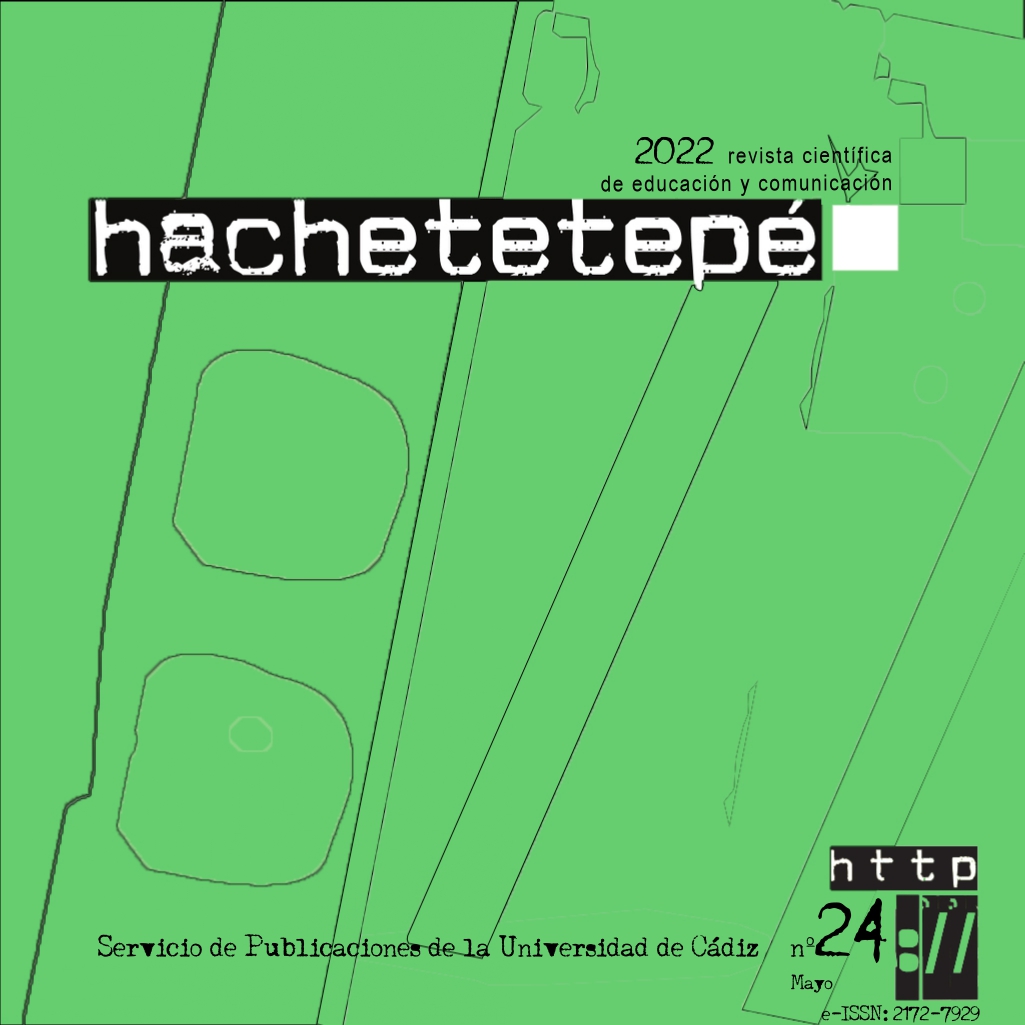Language center students’ perceptions of online english language learning as proficiency
Abstract
English is one of the most widely used languages worldwide, which is why there is a need to introduce this language in the educational field, especially in higher education, since today it has become a basic need for professionals. This study was focused on analyzing students' perceptions of online English learning as proficiency at the Languages Center of Technical University of Cotopaxi. A qualitative approach and a case study method was used. As a data collection technique, an unstructured interview was applied to ten students from different careers and English levels. The results revealed that the majority of students choose English as a proficiency because it is one of the most in-demand languages for getting a job. Moreover, some students take learning English only as a mandatory requirement before graduation. Additionally, inside online English learning there are certain complications with respect to the development of speaking skills. Furthermore, low student participation is due to lack of interest or fear of making mistakes. Therefore, it is necessary to implement different techniques and methods to carry out the online teaching-learning process of English as a proficiency in an effective way and thus be able to achieve all the expectations that students have.
Keywords
Downloads
How to Cite
License
Copyright (c) 2022 Erika Maroto Criollo, Diana Tipan Tipan, Paulina Arias Arroyo, Patricia Mena Vargas

This work is licensed under a Creative Commons Attribution-NonCommercial-NoDerivatives 4.0 International License.
Those authors who have published with this journal, accept the following terms:
- They will retain their copyright and guarantee the journal the right to first publication of their work, which will simultaneously be subject to the Creative Commons Attribution License . They may be copied, used, disseminated, transmitted and publicly displayed, provided that the authorship, url, and magazine are cited, and are not used for commercial purposes. No derivative works are allowed.
- They may adopt other non-exclusive license agreements for the distribution of the published version of the work (e.g., deposit it in an institutional telematic archive or publish it in a monographic volume) provided that the initial publication in this journal is indicated.
- Disseminate your work through the Internet (e.g., in institutional telematic archives or on your website) once the manuscript is accepted, which may lead to interesting exchanges and increased citations of the published work. (See The effect of open access).
Hachetetepé. Scientific journal of education and communication does not charge a fee for the submission of manuscripts or for the publication of its articles.
References
Baki, M., Shear, L., Toyama, Y., & Lassete, A. (2012). Understanding the Implications of Online Learning for Educational Productivity. U.S. Department of Education Office of Educational Technology. https://bit.ly/3DiNG4C
British Council & Education Intelligence. (2015). An examination of policy, perceptions and influencing factors. https://bit.ly/2YQ7g9E
Castro, I. (2011). Language Learning strategies for university unsuccessful language learners in Ecuador. [Thesis Committee in Partial Fulfillment of the requirements for the Degree of Master in Teaching English as a Foreign Language]. https://bit.ly/3DntYVk
Coman, C., Tîru, L., Mesesan-Schmitz, L., Stanciu, C. & Bularca. M. (2020). Online Teaching and Learning in Higher Education during the Coronavirus Pandemic: Students’ Perspective. Sustainability, 12(24), 1-24. https://doi.org/10.3390/su122410367
Creswell, J. (2012). Educational research: planning, conducting, and evaluating quantitative and qualitative research. University of Nebraska–Lincoln.
Diyanti, B. (2016). Teaching English to young learners: learning materials. Journal of English and Education, 4(1), 64-81. https://bit.ly/3IchB22
Durga, S. (2018).The Need of English Language Skills for Employment Opportunities. Journal for research scholars and professionals of English Language Teaching, 2(7), 1-5. https://bit.ly/3BKvsZU
Gestanti, R. A., Nimasari, E. P., & Mufanti, R., (2019). ESP Issue in Indonesian Tertiary Context: What Students Need in Learning English. PUPIL: International Journal of Teaching, Education and Learning, 3(1), 98-117. https://doi.org/10.20319/pijtel.2019.31.98117
Harsono, Y. (2007). Developing learning materials for specific purposes. Teflin Journal, 18(2),169-179. http://doi.org/10.15639/teflinjournal.v18i2/169-179
Hulstijn, J. H. (2011). Language proficiency in native and nonnative speakers: an agenda for research and suggestions for second-language assessment. Language Assessment Quarterly, 8(3), 229-249. https://doi.org/10.1080/15434303.2011.565844
Jamaluddin, M. (2016). English proficiency level among students: A case study in polytechnic Unhku Omar. Commerce Department Polytechnic Ungku Omar, 1(1),73-81. https://bit.ly/3aGKeVI
Jimenez, P. (2018). Exploring students' perceptions about English learning in a public university. HOW, 25(1), 69-91. https://doi.org/10.19183/how.25.1.385
Mahyoob, M. (2020). Challenges of e-Learning during the COVID-19 Pandemic Experienced by EFL Learners. Arab World English Journal (AWEJ), 11(4), 351-362. https://doi.org/10.24093/awej/vol11no4.23
Memić-Fišić, I., & Bijedićm, N. (2017). Teaching materials for ESL distance learning. ExELL, 5(1), 40-54. https://doi.org/10.2478/exell-2018-0003
Merriam, S. (2002). Introduction to qualitative research. Jossey-Bass.
Pickens, J. (2005). Attitudes and Perceptions. Organizational Behavior in Health Care, (3), 43-76.
Putra, E. (2020). The importance of learning English nowadays. https://bit.ly/3BIYrNr
Rahmawati, Sihombing, C. Ginting, E. K. B., Arimonnaria, E. (2021). The effect of e learning on students speaking skill progress: A case of the seventh grade at SMP Pencawan Medan. Indonesian EFL Journal, 7(1), 69-78. http://doi.org/10.25134/ieflj.v7i1.3995
Rifiyant, H. (2020). Learners’ Perceptions of Online English Learning during COVID-19 Pandemic. Scope: Journal of english language teaching, 5(1), 31-35. http://doi.org/10.30998/scope.v5i1.6719
Roshid, M., & Chowdhury, R. (2013). English language proficiency and employment: A case study of Banglades higraduates in Australian employment market. Mevlana International Journal of Education (MIJE), 3(1), 68-81. https://bit.ly/3IoIkI1
Tamayo, M., & Cajas, D. (2020). Students´ perceptions towards learning English online: An exploratory study at a Language Centre of an Ecuadorian University. Dominio de las ciencias, 6(2), 659-675. http://doi.org/10.23857/dc.v6i2.1188
Zainura, S. (2019). Student’s perception on the use of English as a medium of instruction [Thesis, Faculty of Education and Teacher Training Islamic State University Of Ar-Ranir]. https://bit.ly/3shnELr







